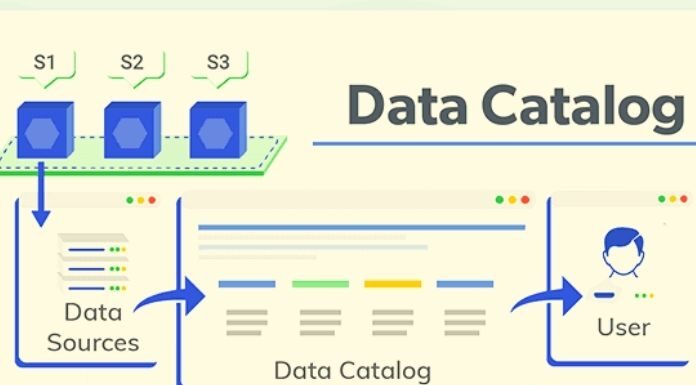Data Catalogue: Efficient data management has never been so important for companies as it is today for digitization projects. The prerequisite for the data catalogue is that the employees involved have precise knowledge of the availability, quality, completeness and origin of the data. Easier said than done because managing the data has never been so complex and difficult. On the one hand, the amount of data is growing rapidly.
On the other hand, new fields of application such as big data, cloud hosting or self-service analytics require new technologies. In addition, there are official regulations that stipulate strict requirements for the handling of data sets. Because of these challenges, data catalogues are experiencing a renaissance. From their initial existence as mere data inventory lists and search tools, they have now become a crucial tool not only for IT and data specialists,
Data Catalogue: A Data Catalogue Is An Important Tool In Modern Data Management
A data catalogue – alternatively also known as a data catalogue or data directory – is a centralized register of metadata that contains all relevant information about the data, its definitions, sources and their interrelationships. This gives employees a uniform structure and overview of the entire database. This means that data catalogues have significant strategic value for various areas of the company.
Chief data officers and chief analytics officers, for example, need a data catalogue as the basis for data asset management, data governance and self-service analyzes. On the other hand, Compliance officers enable the reliable cataloguing of sensitive data to meet the strict requirements of the General Data Protection Regulation (GDPR). Modern solutions also have an intuitive interface, thanks to which non-technical employees can quickly find and manage relevant data and check its quality – even without IT specialist knowledge. This shows that the central cataloguing of information leads to a shift in IT-centric data management towards a curation that extends to all company areas and enables comprehensive business cooperation.
The First Step To The Data Catalogue: Collect Metadata With A System
The most important characteristic of an effective data catalogue is its completeness. If companies want to implement their catalogue, they must first scan their entire database and enter the associated metadata. All data lakes, data warehouses, operational databases and all other data stocks that are considered valuable must be taken into account. Collecting and structuring the mass of metadata manually would be an almost impossible undertaking and prone to errors. The software does this process automatically. Modern data intelligence solutions such as the Intelligent Data Catalog (IDC) from ASG Technologies use machine learning to ensure seamless enrichment. Automated tagging and recommendations are essential.
Meet The Demands Of Different Users
Choosing a suitable data catalogue is not easy. After all, it has to be embedded in the existing business culture and take into account the interests of all users. The users of the data catalogue are all those who report, visualize and analyze data. This includes highly qualified data analysts as well as business users. The solution must therefore offer a certain degree of freedom for the IT specialists to easily meet the requirements of more complex issues. At the same time, it also needs a high degree of user-friendliness so that employees with little technical know-how can benefit from it. The best way to do this is through an intuitive user interface.
Overview Of The Functions Of The Software
- Data lineage to document the flow of data through the company and the transformation of the data
- Intelligent recognition and labelling of personal data in both structured and unstructured data stores. This is a prerequisite for supporting compliance with data protection regulations.
- Role-based access to the data
- Out of the box workflows to manage data access
- Identification of business terms, the evaluation of the data quality and the cooperation of different users based on rankings, comments and recommendations, and tag suggestions.
The data catalogue has become an essential part of modern data management that companies cannot avoid. Only when employees have access to relevant, complete and reliable data at all times can they exploit the full potential of the information, use it profitably and make well-founded decisions.
ALSO READ: Multi-Cloud: 6 Steps To A More Efficient IT Environment

